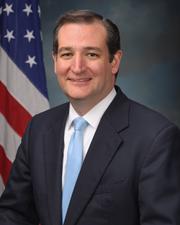0
0
0
Safeguarding Honest Speech Act
12/15/2023, 4:09 PM
Summary of Bill S 3318
The Safeguarding Honest Speech Act, also known as Bill 118 s 3318, is a piece of legislation currently being considered by the US Congress. The main purpose of this bill is to protect individuals from being sued for expressing their opinions or engaging in political speech.
The bill aims to prevent frivolous lawsuits that are brought against individuals who are exercising their First Amendment rights. It seeks to establish a legal standard that would make it more difficult for plaintiffs to successfully sue someone for defamation or libel based on their opinions or political speech.
Under the Safeguarding Honest Speech Act, plaintiffs would be required to prove that the defendant acted with actual malice or reckless disregard for the truth in order to win a defamation lawsuit. This higher standard of proof is intended to protect individuals from being silenced or punished for expressing their opinions, even if those opinions are controversial or unpopular. Overall, the Safeguarding Honest Speech Act is designed to uphold the principles of free speech and protect individuals from being targeted by lawsuits simply for expressing their beliefs. It is currently being debated in Congress, with supporters arguing that it is necessary to safeguard the rights of individuals to engage in honest and open discourse without fear of legal repercussions.
The bill aims to prevent frivolous lawsuits that are brought against individuals who are exercising their First Amendment rights. It seeks to establish a legal standard that would make it more difficult for plaintiffs to successfully sue someone for defamation or libel based on their opinions or political speech.
Under the Safeguarding Honest Speech Act, plaintiffs would be required to prove that the defendant acted with actual malice or reckless disregard for the truth in order to win a defamation lawsuit. This higher standard of proof is intended to protect individuals from being silenced or punished for expressing their opinions, even if those opinions are controversial or unpopular. Overall, the Safeguarding Honest Speech Act is designed to uphold the principles of free speech and protect individuals from being targeted by lawsuits simply for expressing their beliefs. It is currently being debated in Congress, with supporters arguing that it is necessary to safeguard the rights of individuals to engage in honest and open discourse without fear of legal repercussions.
Read the Full Bill
Current Status of Bill S 3318
Bill S 3318 is currently in the status of Bill Introduced since November 15, 2023. Bill S 3318 was introduced during Congress 118 and was introduced to the Senate on November 15, 2023. Bill S 3318's most recent activity was Read twice and referred to the Committee on Homeland Security and Governmental Affairs. as of November 15, 2023
Bipartisan Support of Bill S 3318
Total Number of Sponsors
1Democrat Sponsors
0Republican Sponsors
1Unaffiliated Sponsors
0Total Number of Cosponsors
0Democrat Cosponsors
0Republican Cosponsors
0Unaffiliated Cosponsors
0Policy Area and Potential Impact of Bill S 3318
Primary Policy Focus
Government Operations and PoliticsAlternate Title(s) of Bill S 3318
Safeguarding Honest Speech Act
Safeguarding Honest Speech Act
A bill to prohibit the use of funds to implement, administer, or enforce measures requiring certain employees to refer to an individual by the preferred pronouns of such individual or a name other than the legal name of such individual, and for other purposes.
Comments
Sponsors and Cosponsors of S 3318
Latest Bills
ADS for Mental Health Services Act
Bill S 414December 10, 2025
ASCEND Act
Bill S 1437December 10, 2025
Reliable Federal infrastructure Act
Bill HR 4690December 10, 2025
SHOWER Act
Bill HR 4593December 10, 2025
Dismissing the election contest relating to the office of Representative from the Fourteenth Congressional District of Florida.
Bill HRES 312December 10, 2025
Dismissing the election contest relating to the office of Representative from the Thirtieth Congressional District of Texas.
Bill HRES 311December 10, 2025
Dismissing the election contest relating to the office of Representative from the at-large Congressional District of Alaska.
Bill HRES 310December 10, 2025
Dismissing the election contest relating to the office of Representative from the Twenty-eighth Congressional District of Texas.
Bill HRES 309December 10, 2025
Dismissing the election contest relating to the office of Representative from the Fourteenth Congressional District of Florida.
Bill HRES 308December 10, 2025
To designate the facility of the United States Postal Service located at 300 Macedonia Lane in Knoxville, Tennessee, as the "Reverend Harold Middlebrook Post Office Building".
Bill HR 1372December 10, 2025
Safeguarding Honest Speech Act
Bill HR 6432January 30, 2024
